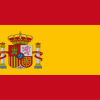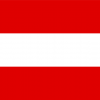Portugal – Action Plan for the Digital Transition
The Action Plan for Digital Transition (Action plan) approved by the Council of Ministers’ of Portugal Resolution No. 31/2020 reflects the strategy defined for the country’s digital transition, as laid out in the Portugal Digital Mission Structure. The Portugal Digital Mission Structure while being committed to the plan's, strategic objectives, is responsible for ensuring the global coordination of the Action Plan for the Digital Transition ensuring the links with the different structures involved in the measures, their implementation and the reporting of the results of the Action Plan, as well as promoting it, both at a national and international level, thus contributing actively to its success.
Action plan includes three main pillars of actions:
1. Capacity building and digital inclusion
The objective of promoting initiatives that contribute to the development of digital skills in society in general, justifies the adoption of measures that specifically address the three defined sub-pillars:
Digital education - technologies integration m the different curricular areas of basic and secondary education, aiming at improving continuous learning quality, as well as innovation and development of the educational system, providing children and young people with the necessary for their full personal and professional fulfilment. Just as equal opportunities in access to quality digital educational equipment, resources and investment in the digital skills of teachers, and trainers in the context of the training modalities of the National Qualifications System.
Professional training and reskilling - The widening of the training offer of higher education institutions and their approach to companies, ensuring response to the specific needs of the labor market in terms of digital skills. Vocational training responses including reskilling of employed or unemployed workers that fosters employment in the digital area and ensures that the impact of automation in the labor market is minimized.
2. Businesses' Digital Transformation
With the support of hubs, SMEs will be able to test new digital technologies, access advanced digital skills and get specialized training, advice and access to the funding needed for their digital transition, promote collaboration with other SMEs, large enterprises and entities from the research and innovation ecosystem.
Public services that serve citizens better every day, must focus on communication accessibility, providing everyone, and particularly people with disabilities, conditions to access to opportunities that are created by new digital technologies. This evolution will always have to meet the existing accessibility requirements of public bodies' websites and mobile applications.
Action plan for the digital transition is available in Portuguese.
Strategy Details
The Action plan initiatives are financed from the Portuguese Government budget, as well as through EU funding and private investment.
The Action Plan for Digital Transition is coordinated by the Portugal Digital Mission Structure with the active involvement of other ministries and other public sector organizations, as well as business, academic sector, scientific community and social partners.






